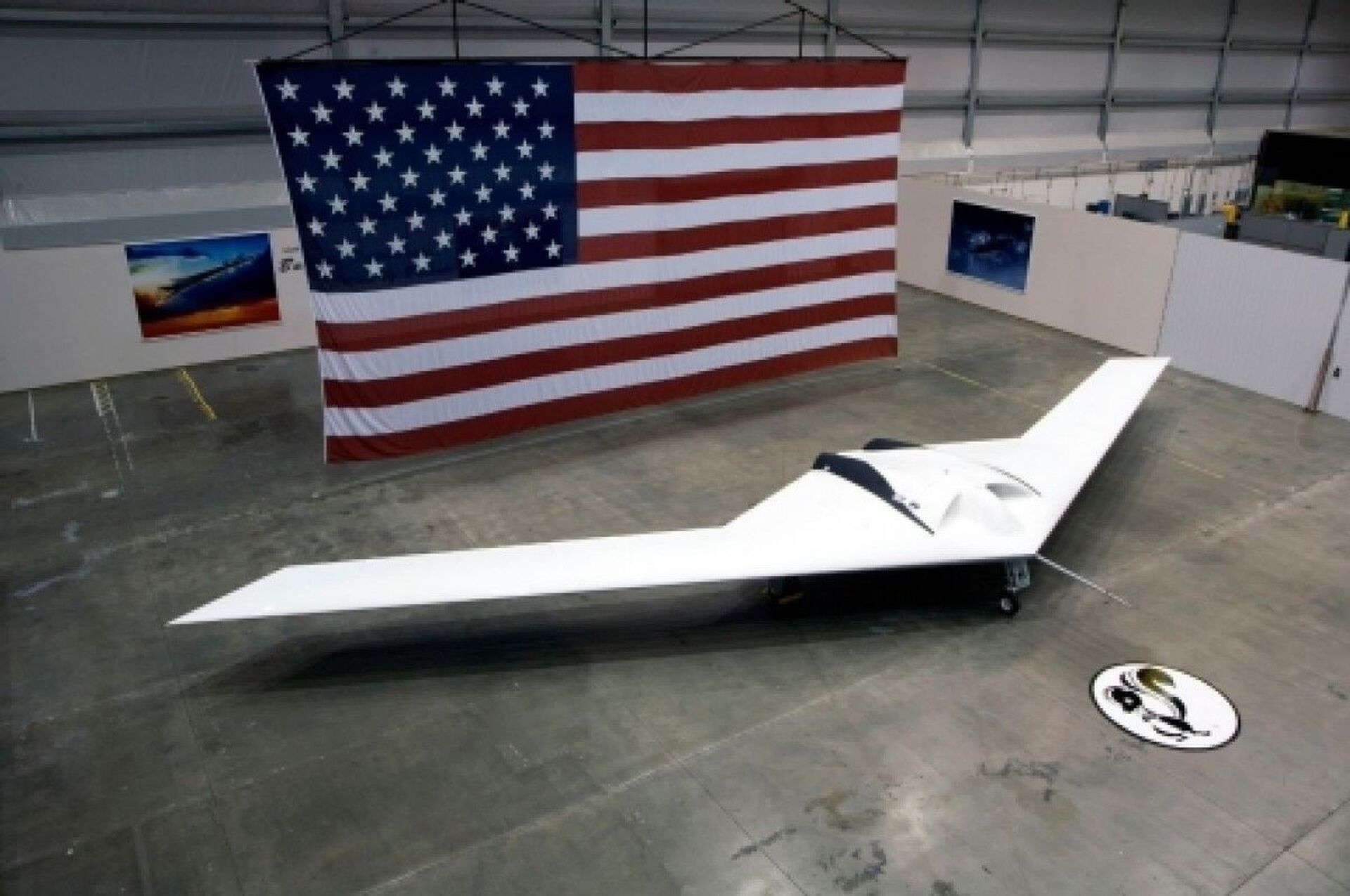US Air Force's Secretive RQ-180 Stealth Drone Reportedly Photographed Over Area 51

CC BY 2.0 / Doc Searls /
Subscribe
Back in September, an aircraft that appeared to be the US Air Force's secret RQ-180 drone was spotted over the Philippines. Recent stealth drone sightings come nearly a year after the emergence of the first reported photos of the Northrop Grumman-made unmanned aerial vehicle (UAV).
Amid rumors that the RQ-180 had become operable, a new photo was published by Dreamlandresort.com on Sunday, showing what appears to be a stealth drone conducting a test flight above Area 51, the top-secret facility located within the Nevada Test and Training Range.
Joerg Arnu, who maintains the unofficial website, claimed that the aircraft was at an altitude of approximately 70,000 feet (21,336 meters) when the photo was taken by him and another unnamed witness.
"A friend who wishes to remain anonymous and I were at the Groom Lake Road gate yesterday. I heard a faint aircraft noise and noticed a contrail straight above us, inside the Area 51 restricted airspace, heading roughly SSW," Arnu recounted, as reported by The Drive.
The highly-classified USAF facility is also referred to as Homey Airport or Groom Lake, and is remotely administered by Edwards Air Force Base, itself situated in southern California.
"The aircraft was leaving two telltale contrails behind it, indicative of a closely-set twin-engine arrangement, exactly as we have seen it before. The shape is also a perfect match, with slender wings and a diamond-like center fuselage area..."https://t.co/0O5GvILgCi
— Alex Luck (@AlexLuck9) November 1, 2021
Using image-stabilizing binoculars, Arnu got a closer look at the aircraft and ruled out that what he was looking at was a B-2, as the stealth bomber notably has a pointed tail, while the aircraft he was looking at had a serrated tail.
"It is clearly a twin-engine aircraft," he added, noting the photo was captured with a Canon 20Mpix camera.
Almost exactly one year ago, the first photos said to be of the stealth drone began circulating online, creating a buzz around the USAF's secret and elusive UAV.
A mystery UAV — possibly RQ-180 — flew a racetrack pattern in daylight over Edwards in mid-October. Also, @AvWeekGuy reports an RQ-180 nickname is Shikaka, the great white bat from Ace Ventura 2. Story:🔒https://t.co/bB5xT3mFLX
— Steve Trimble (@TheDEWLine) November 1, 2020
Aviation Week's Guy Norris determined that the image, captured by photographer and actor Rob Kolinsky, showed an RQ-180 occupying the skies above Edwards AFB.
However, doubt was cast on the outlet's identification of the aircraft, as it is believed that RQ-180 operations were being conducted out of Beale AFB - located more than 350 miles (563 kilometers) from Edwards AFB.
With the USAF remaining tight-lipped about anything related to the RQ-180, The Drive suggested that the photograph in question could be the P-175 Polecat, an unmanned aerial vehicle developed by Lockheed Martin.

An image of the P-175 Polecat, a high-altitude unmanned aircraft demonstrator built by Lockheed Martin's Skunk Works. Its one flying model crashed in 2006.
The aircraft was created as part of an effort to promote the development of High Altitude Long Endurance-Demonstrator (HALE) class drones, or "atmospheric satellites," which are designed to operate in the tropopause, at a range between 60,000 feet and 65,000 feet (18,288 meters and 19,812 meters).
